-
 bitcoin
bitcoin $99296.318777 USD
-2.82% -
 ethereum
ethereum $3203.465899 USD
-6.84% -
 tether
tether $0.999590 USD
-0.03% -
 xrp
xrp $2.308913 USD
-4.00% -
 bnb
bnb $922.788929 USD
-3.53% -
 solana
solana $144.020807 USD
-5.89% -
 usd-coin
usd-coin $0.999798 USD
0.00% -
 tron
tron $0.291590 USD
-1.12% -
 dogecoin
dogecoin $0.163780 USD
-4.46% -
 cardano
cardano $0.526919 USD
-4.40% -
 hyperliquid
hyperliquid $37.888865 USD
-2.24% -
 bitcoin-cash
bitcoin-cash $510.515457 USD
-1.08% -
 chainlink
chainlink $14.436987 USD
-5.63% -
 stellar
stellar $0.267345 USD
-4.77% -
 unus-sed-leo
unus-sed-leo $9.175222 USD
0.53%
What is smart contract on blockchain?
Smart contracts leverage blockchain technology to automate the execution of predetermined terms, ensuring trustless, transparent, and efficient transactions.
Oct 08, 2024 at 10:31 am
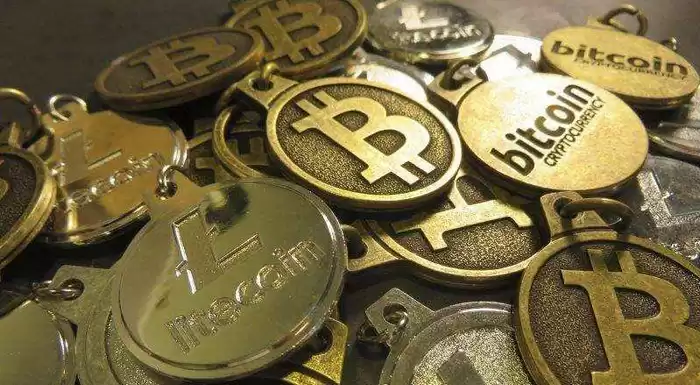
A smart contract is a self-executing contract written in code and deployed on a blockchain network. It automates the execution of predetermined terms and conditions between parties based on specific inputs and outputs.
2. Function of Smart ContractsSmart contracts facilitate trustless, transparent, and efficient transactions by:
Enforcing agreement terms: Automatically executing preset actions upon specific conditions.
Eliminating intermediaries: Removing the need for third-party verification and record-keeping.
Reducing costs and delays: Streamlining processes and saving on transaction fees and paperwork.
Ensuring transparency and immutability: Storing all contract terms and execution records on a decentralized, tamper-proof blockchain.
Codebase: The actual computer code that defines the contract's logic and functionality.
Conditions: Pre-determined triggers that initiate contract execution.
Actions: The specific actions that occur when the conditions are met.
Parties: The individuals or organizations involved in the contract.
Security: Encryption and authentication mechanisms to protect the contract from unauthorized access or manipulation.
Increased trust and accountability
Lower costs and faster transaction times
Elimination of intermediaries
Improved transparency and auditability
Enhanced security and data integrity
Smart contracts have a wide range of applications, including:
Supply chain management
Financial transactions
Identity verification
Voting systems
Property management
Dispute resolution
Legal and regulatory complexities
Technical vulnerabilities and code bugs
Costs of development and deployment
Scalability and performance concerns in high-volume scenarios
Ensuring the reliability and fairness of codebase implementation
Smart contracts revolutionize the execution of agreements by automating contract enforcement and eliminating the need for intermediaries. While overcoming challenges like security and scalability are ongoing, smart contracts hold immense potential to enhance efficiency, transparency, and trust in various industries.
Disclaimer:info@kdj.com
The information provided is not trading advice. kdj.com does not assume any responsibility for any investments made based on the information provided in this article. Cryptocurrencies are highly volatile and it is highly recommended that you invest with caution after thorough research!
If you believe that the content used on this website infringes your copyright, please contact us immediately (info@kdj.com) and we will delete it promptly.
- Crypto Carnage: Navigating Selling and Liquidations in a Wild Market
- 2025-11-14 16:50:01
- Mohammed Siraj's First Spell Woes: An India Teammate's Critique
- 2025-11-14 14:40:02
- BTC, ETH, and Altcoin Picks: Navigating the Crypto Landscape
- 2025-11-14 14:50:01
- Coin Toss Tales: Temba Bavuma's Wager and India vs. SA Showdown
- 2025-11-14 12:50:01
- Shubman Gill, WTC Final, and the Coin Toss: A New Yorker's Take
- 2025-11-14 15:05:01
- Aerodrome Takes Flight: Unifying Ethereum DeFi Liquidity Across Chains
- 2025-11-14 15:10:02
Related knowledge
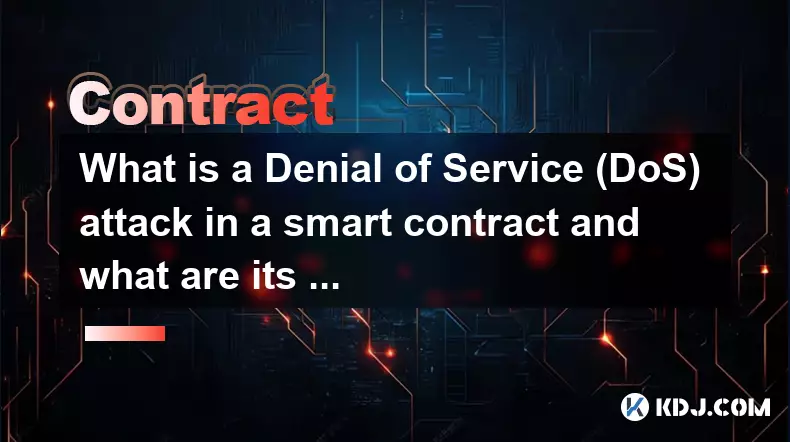
What is a Denial of Service (DoS) attack in a smart contract and what are its common forms?
Nov 10,2025 at 05:20am
Understanding Denial of Service in Smart Contracts1. A Denial of Service (DoS) attack in the context of smart contracts refers to a scenario where a m...

What is a cryptographic nonce used for in transaction signing?
Nov 11,2025 at 05:59am
Understanding Cryptographic Nonces in Blockchain Transactions1. A cryptographic nonce is a random or pseudo-random number used only once in the contex...
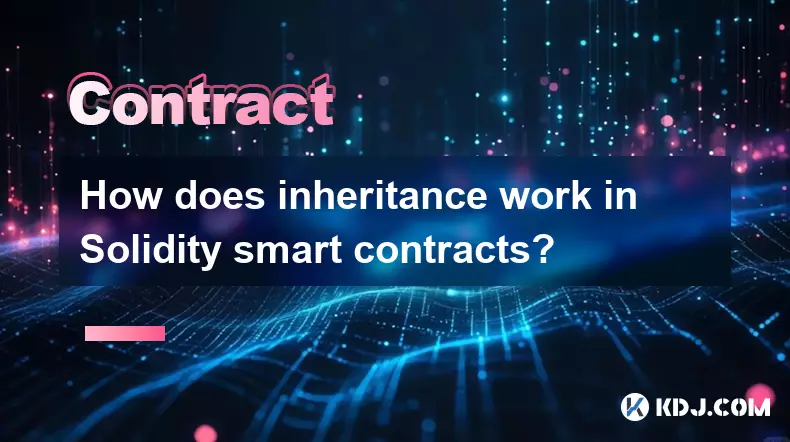
How does inheritance work in Solidity smart contracts?
Nov 11,2025 at 10:40pm
Inheritance in Solidity: Building Modular Smart Contracts1. Inheritance in Solidity allows one contract to adopt the properties and functions of anoth...
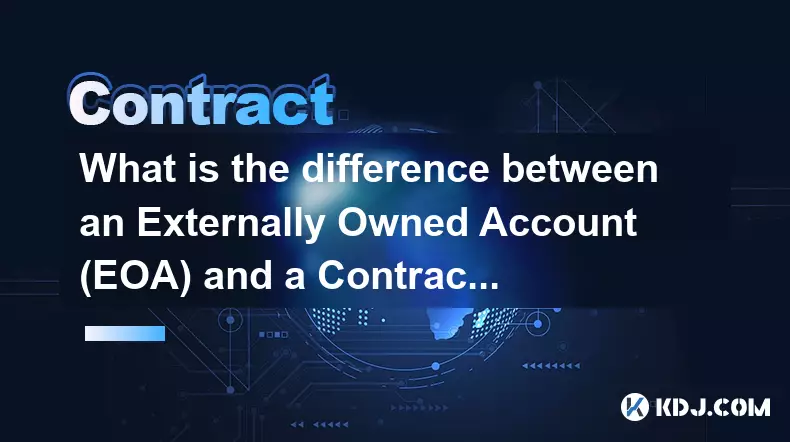
What is the difference between an Externally Owned Account (EOA) and a Contract Account?
Nov 13,2025 at 04:00am
Understanding Externally Owned Accounts (EOA)1. An Externally Owned Account is controlled directly by a private key, which means only the holder of th...
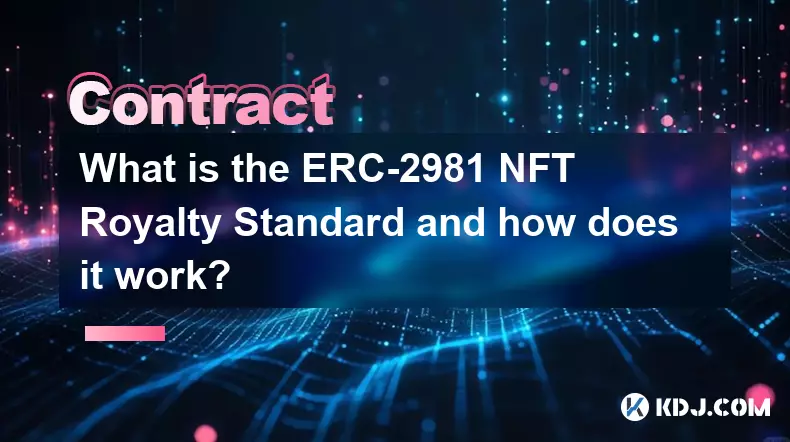
What is the ERC-2981 NFT Royalty Standard and how does it work?
Nov 13,2025 at 05:39am
Understanding the ERC-2981 NFT Royalty Standard1. The ERC-2981 standard is a proposed Ethereum Request for Comment that introduces a royalty mechanism...

What is a Minimal Proxy Contract (EIP-1167) and how does it save gas on deployment?
Nov 12,2025 at 11:39am
What is a Minimal Proxy Contract (EIP-1167)?1. A Minimal Proxy Contract, standardized under Ethereum Improvement Proposal (EIP) 1167, is a lightweight...

What is a Denial of Service (DoS) attack in a smart contract and what are its common forms?
Nov 10,2025 at 05:20am
Understanding Denial of Service in Smart Contracts1. A Denial of Service (DoS) attack in the context of smart contracts refers to a scenario where a m...

What is a cryptographic nonce used for in transaction signing?
Nov 11,2025 at 05:59am
Understanding Cryptographic Nonces in Blockchain Transactions1. A cryptographic nonce is a random or pseudo-random number used only once in the contex...

How does inheritance work in Solidity smart contracts?
Nov 11,2025 at 10:40pm
Inheritance in Solidity: Building Modular Smart Contracts1. Inheritance in Solidity allows one contract to adopt the properties and functions of anoth...

What is the difference between an Externally Owned Account (EOA) and a Contract Account?
Nov 13,2025 at 04:00am
Understanding Externally Owned Accounts (EOA)1. An Externally Owned Account is controlled directly by a private key, which means only the holder of th...

What is the ERC-2981 NFT Royalty Standard and how does it work?
Nov 13,2025 at 05:39am
Understanding the ERC-2981 NFT Royalty Standard1. The ERC-2981 standard is a proposed Ethereum Request for Comment that introduces a royalty mechanism...

What is a Minimal Proxy Contract (EIP-1167) and how does it save gas on deployment?
Nov 12,2025 at 11:39am
What is a Minimal Proxy Contract (EIP-1167)?1. A Minimal Proxy Contract, standardized under Ethereum Improvement Proposal (EIP) 1167, is a lightweight...
See all articles










































































